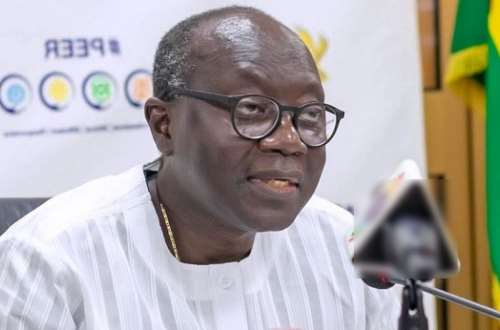Ghana has extended deadline for its debt restructuring program for the third time
Ghana has extended its debt program deadline for the third time. The program was proposed late last year, in December. This followed the country’s success in securing a staff-level agreement with the International Monetary Fund (IMF) for $3 billion. A recent report shows that Ghana has extended the deadline for its domestic deb exchange program for the third time since it was initiated. As a result of Ghana’s economic struggles last year, the country’s government came up with the idea to restructure its domestic debt exchange, an idea that was lauded at the time. The idea followed Ghana’s success in securing a staff-level agreement with the International Monetary Fund (IMF) for a $3 billion rescue package in December of 2022. However, since then the country has not been able to fully actualize the domestic debt exchange program. The country’s finance minister Ofori-Atta wrote disclosed via Twitter that the exchange would be extended pending further stakeholder engagement. "Building consensus is key to a successful economic recovery for Ghana," he said. This puts a dent in Ghana’s plan for securing the $3 billion bailout from the IMF, as the international body has noted that its approval for the loan is pending a comprehensive debt restructuring program from Ghana. Last week, the country offered to pay holders of its 2023 bond a 2% cash fee in exchange for registering for the exchange, an initiative that recorded little to no turnout. "Ghana spent a lot of money solving the problems it had with its banks from the 2014-2015 crisis, so you want to think very carefully to avoid jeopardizing them," said Gregory Smith, emerging markets fund manager at London-based M&G Investments. Since last year, the Ghanaian administration has remained insistent that the IMF’s $3 billion loan is a very important piece in solving the country’s economic problems. This idea, however, has been very unpopular amongst the general public and has been a source of frustration for the country’s parliament.

- Ghana has extended its debt program deadline for the third time.
- The program was proposed late last year, in December.
- This followed the country’s success in securing a staff-level agreement with the International Monetary Fund (IMF) for $3 billion.
A recent report shows that Ghana has extended the deadline for its domestic deb exchange program for the third time since it was initiated.
As a result of Ghana’s economic struggles last year, the country’s government came up with the idea to restructure its domestic debt exchange, an idea that was lauded at the time.
The idea followed Ghana’s success in securing a staff-level agreement with the International Monetary Fund (IMF) for a $3 billion rescue package in December of 2022.
However, since then the country has not been able to fully actualize the domestic debt exchange program. The country’s finance minister Ofori-Atta wrote disclosed via Twitter that the exchange would be extended pending further stakeholder engagement.
"Building consensus is key to a successful economic recovery for Ghana," he said.
This puts a dent in Ghana’s plan for securing the $3 billion bailout from the IMF, as the international body has noted that its approval for the loan is pending a comprehensive debt restructuring program from Ghana.
Last week, the country offered to pay holders of its 2023 bond a 2% cash fee in exchange for registering for the exchange, an initiative that recorded little to no turnout.
"Ghana spent a lot of money solving the problems it had with its banks from the 2014-2015 crisis, so you want to think very carefully to avoid jeopardizing them," said Gregory Smith, emerging markets fund manager at London-based M&G Investments.
Since last year, the Ghanaian administration has remained insistent that the IMF’s $3 billion loan is a very important piece in solving the country’s economic problems.
This idea, however, has been very unpopular amongst the general public and has been a source of frustration for the country’s parliament.

















